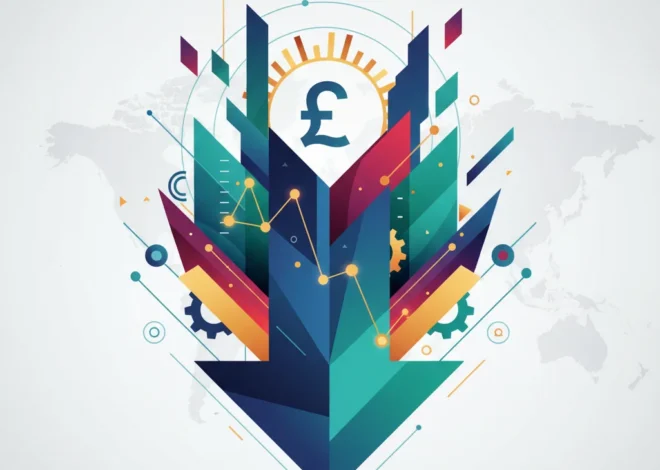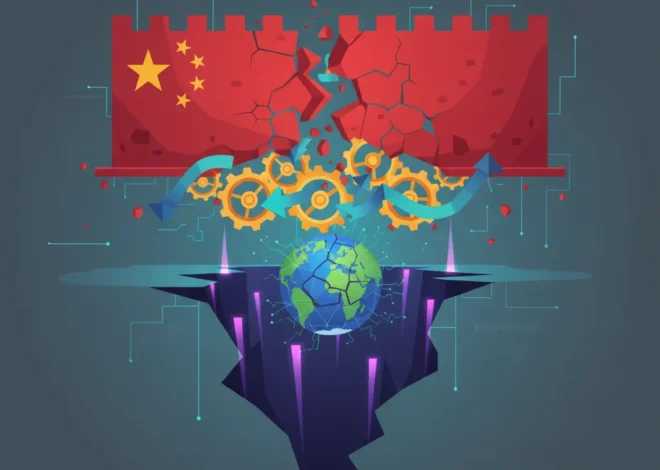
Netanyahu’s High-Stakes Gamble: Decoding the Economic Fallout for Israel and Global Investors
The Intersection of Politics, Conflict, and Your Portfolio
In the complex theater of global geopolitics, events can pivot on a knife’s edge, sending ripples through international markets and national economies. The recent daring rescue of four Israeli hostages from Gaza was a moment of national euphoria for Israel. Yet, for Prime Minister Benjamin Netanyahu, it represents more than a tactical victory; it’s a calculated wager for political redemption. This high-stakes maneuver, however, unfolds against a backdrop of deep political division and a grueling war, creating a volatile environment that savvy investors and business leaders cannot afford to ignore.
The core issue is a profound disconnect: a military success celebrated by the public versus a political structure fracturing at its seams. The very day after the rescue, centrist leader Benny Gantz resigned from the war cabinet, a move that strips the government of its veneer of national unity and leaves Netanyahu more reliant on his far-right coalition partners. According to the Financial Times, this political drama is unfolding as Netanyahu attempts to rewrite the narrative surrounding the catastrophic intelligence failures of October 7th. For those engaged in global finance and investing, understanding this dynamic is crucial, as political stability is the bedrock upon which economic confidence is built.
From Political Crisis to Economic Reality
Israel’s economy, once a powerhouse of innovation and growth, is now navigating the immense pressures of a protracted conflict. The war’s cost is staggering, not just in human terms, but in shekels and cents. The initial shock saw the stock market tumble and the shekel weaken, prompting swift and decisive action from the Bank of Israel to stabilize the financial system. However, the long-term economic consequences are now coming into sharper focus.
The government’s expanding budget deficit, driven by massive defense spending and economic support measures, has already triggered a historic credit rating downgrade. This isn’t just a mark on a national report card; it directly increases the cost of borrowing for the government and Israeli corporations, impacting everything from national infrastructure projects to corporate expansion. The longer the war continues and the more unstable the political leadership appears, the greater the risk premium investors will demand. This uncertainty directly affects trading volumes, bond yields, and the overall investment climate.
“Silicon Wadi”: The Tech Engine Under Strain
Israel’s global reputation as “Silicon Wadi” is perhaps its most valuable economic asset. The nation’s high-tech sector has been a magnet for foreign direct investment, a cradle for groundbreaking financial technology (fintech), and a significant contributor to its GDP. But this engine of growth is now facing unprecedented headwinds.
The mass call-up of an estimated 300,000 reservists, many of whom are skilled tech workers, engineers, and executives, has created a significant labor crunch. Projects are delayed, product roadmaps are redrawn, and the vibrant start-up culture is under immense strain. Venture capital funding, the lifeblood of innovation, has slowed as global investors weigh the heightened geopolitical risk against potential returns. While Israel’s tech scene is famously resilient, the current combination of war, internal political strife, and a potential brain drain presents a formidable challenge. The fintech and cybersecurity sectors, cornerstones of Israel’s tech prowess, now have to prove they can innovate and scale amidst a crisis that shows no signs of abating.
The table below outlines some of the key pressures currently impacting Israel’s vital technology sector and the broader economy.
| Pressure Point | Impact on Tech Sector & Economy | Implications for Investors |
|---|---|---|
| Reservist Call-ups | Significant labor shortages, project delays, and loss of productivity in high-skill industries like fintech and cybersecurity. | Increased operational risk for companies heavily reliant on key personnel; potential for missed earnings targets. |
| Reduced Venture Capital | Slower funding rounds for start-ups, potentially stifling innovation and future growth engines. | Fewer opportunities in early-stage tech; a shift towards more established, less risky assets. |
| Government Budget Deficit | Diversion of funds from R&D and education to defense, potentially impacting long-term competitiveness. | Concerns over sovereign debt, currency stability, and the country’s overall creditworthiness. |
| Political Instability | Unpredictable policy environment and lack of a clear long-term economic strategy, deterring foreign investment. | Higher risk premium required; increased volatility in the Tel Aviv Stock Market (TASE). |
The Trump Factor: A Bet on Diplomatic Disruption
A fascinating element of the current political calculus, as highlighted by the Financial Times, is Netanyahu’s apparent wager on a potential return of Donald Trump to the US presidency. This strategy is predicated on the belief that a Trump administration would offer more unconditional support for his government’s policies, easing international pressure regarding the war in Gaza and relations with the Palestinians. This is a geopolitical bet with far-reaching economic consequences.
A significant shift in US foreign policy could redraw the diplomatic map of the Middle East, impacting everything from oil prices to regional trade agreements. For the global economy, such a change introduces another layer of uncertainty. It could embolden certain actors and destabilize others, with direct implications for supply chains, energy markets, and international banking relationships. The outcome of the US election is now an event that emerging market investors, and indeed the entire financial world, are watching with bated breath, as its effects will be felt far beyond the borders of Israel and the United States.
An Investor’s Playbook for Geopolitical Volatility
Navigating this environment requires a disciplined and informed approach. The situation in Israel is a potent reminder that geopolitical risk is a tangible factor that can impact portfolio performance. So, how can investors and business leaders respond?
- Monitor Key Economic Indicators: Keep a close watch on the Israeli shekel, the country’s credit default swaps (CDS), and foreign direct investment (FDI) flows. These metrics provide a real-time gauge of market sentiment and economic health, cutting through the political noise.
- Diversify and Hedge: The age-old wisdom of diversification is paramount. Exposure to Israeli assets, particularly in the tech sector, should be balanced with investments in other regions to mitigate country-specific risk. Currency hedging and other sophisticated trading strategies can also be employed to protect against sharp currency devaluations.
- Focus on Resilient Sectors: Even within a high-risk environment, opportunities exist. Sectors like cybersecurity may see increased demand due to the ongoing conflict. Similarly, established companies with strong balance sheets and global revenue streams are better positioned to weather the storm than early-stage start-ups reliant on the next funding round. Even novel technologies like blockchain could find applications in securing supply chains or financial transactions in a volatile region.
- Understand the Political Landscape: More than ever, a top-down analysis of the political situation is essential. Understanding the motivations of key players, the stability of the governing coalition, and the potential for early elections is no longer just for political scientists; it’s a critical component of financial due diligence.
The road ahead for Israel is fraught with uncertainty. Prime Minister Netanyahu’s fight for his political life is now inextricably linked with the nation’s military campaign and its economic future. For the global investment community, this is a moment for caution, deep analysis, and strategic positioning. The resilience of the Israeli economy will be tested like never before, and the outcome will have lasting implications for the entire Middle East and beyond.
Conclusion: A Precarious Balance
The story of Netanyahu’s bid for political redemption is more than a regional political drama; it is a case study in the powerful interplay between leadership, conflict, and economic destiny. A tactical military victory has momentarily bolstered a leader under immense pressure, but it has simultaneously exposed the deep cracks in his government. For investors, business leaders, and students of economics, the key takeaway is clear: in an interconnected world, a prime minister’s political gambit in Jerusalem can and will influence market sentiment in New York, London, and Tokyo. The stability of one of the world’s most dynamic innovation hubs hangs in the balance, and the world is watching to see which way the scales will tip.


